A Detailed Report on Quentin Tarantino's Film: Django Unchained
VerifiedAdded on 2023/04/25
|5
|1089
|213
Report
AI Summary
This report provides a detailed analysis of Quentin Tarantino's film, Django Unchained. It begins with an introduction to the film, its plot, and its key actors. The report then delves into the film's genre, classifying it as a historical drama and a Blaxploitation film, and supports this classification with three key criteria: the film's portrayal of the historical context of slavery in America, the depiction of the struggles faced by African Americans, and the protagonist's quest to reunite his family. The report uses a specific scene from the film to support these classifications. Additionally, the report includes responses to three peer reviews, addressing their viewpoints on the film. The conclusion reiterates the film's significance as a classic drama exploring the themes of slavery and family, and it concludes with a list of references. The report offers a comprehensive understanding of Django Unchained's themes and context.
1 out of 5
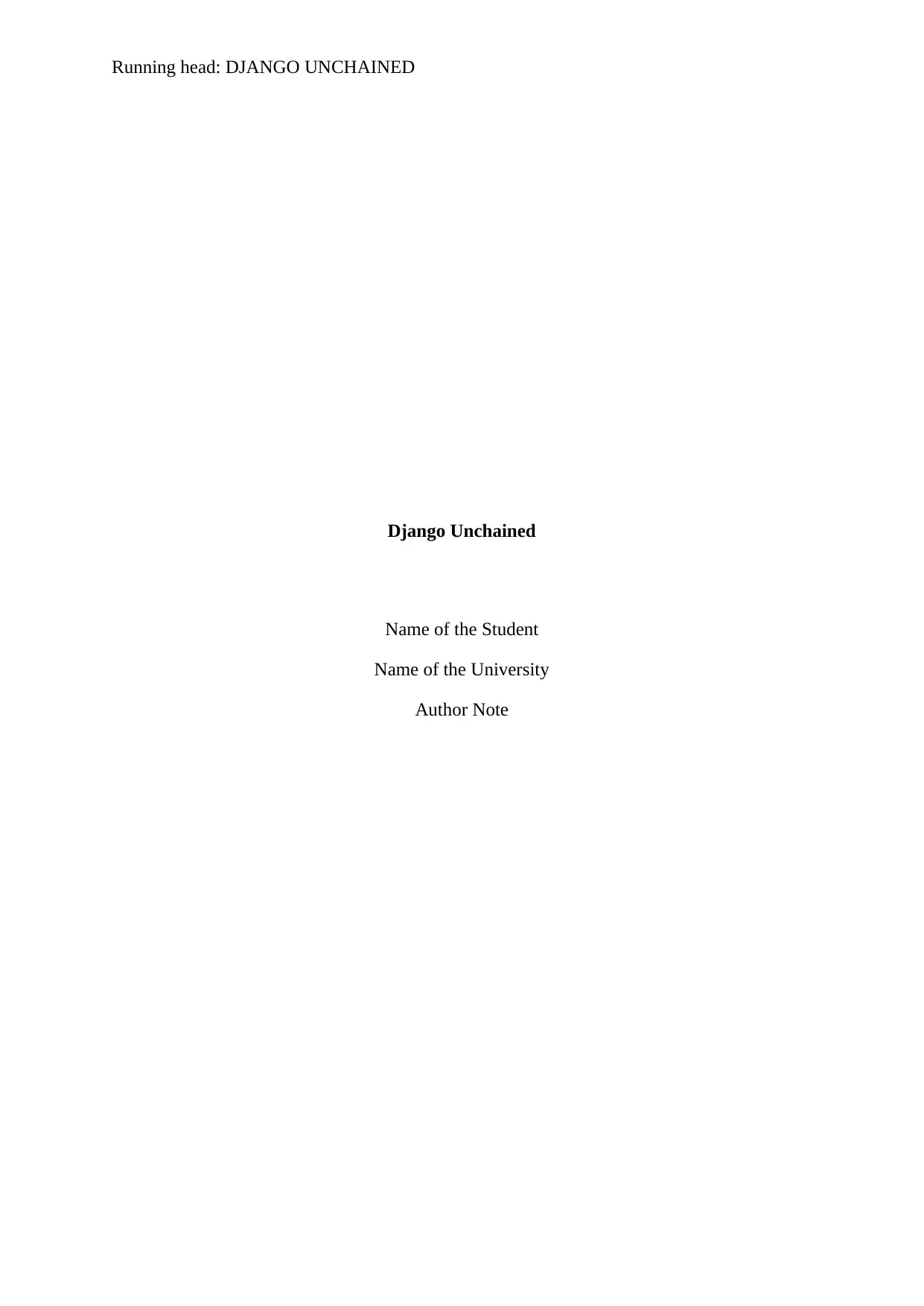
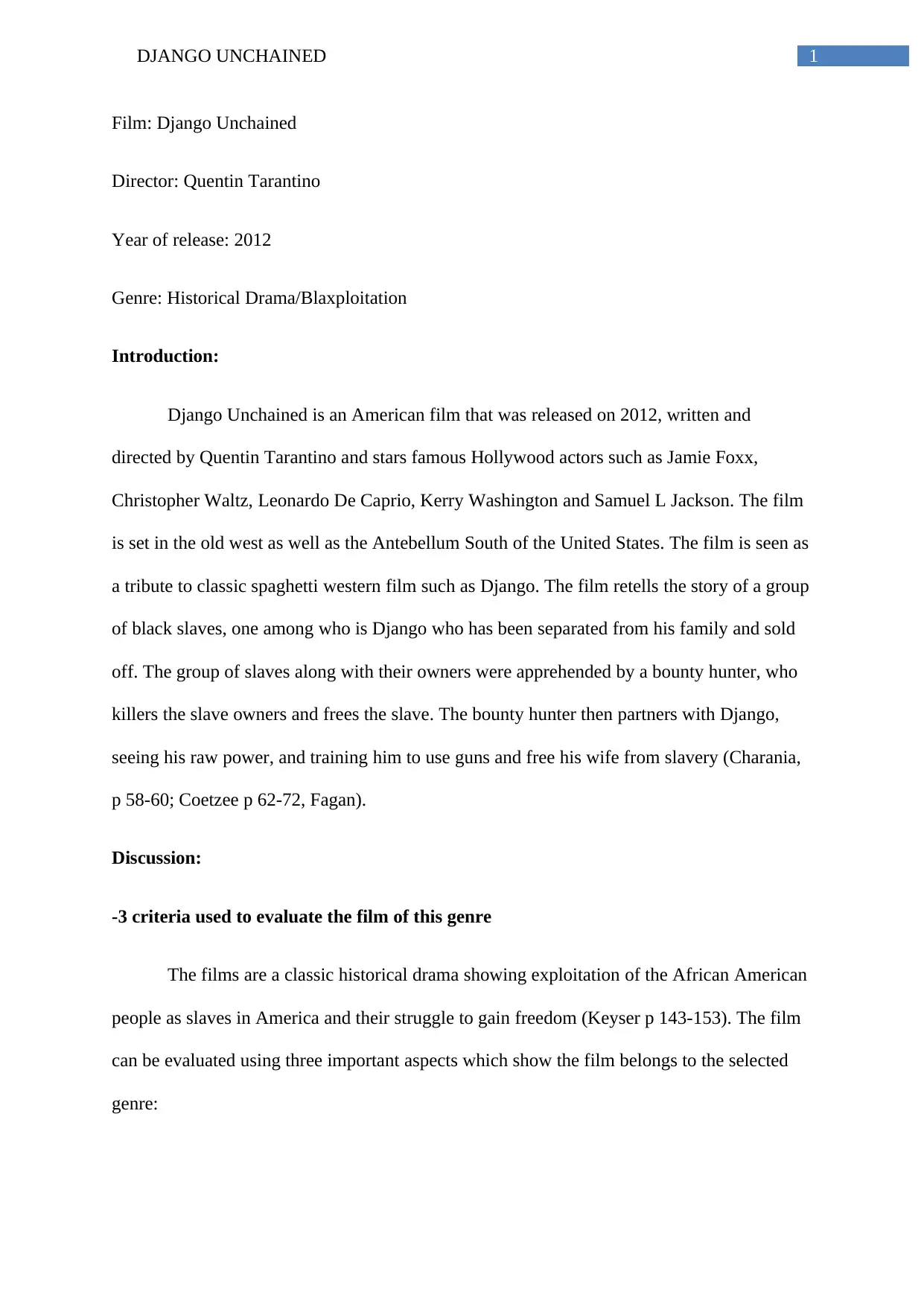
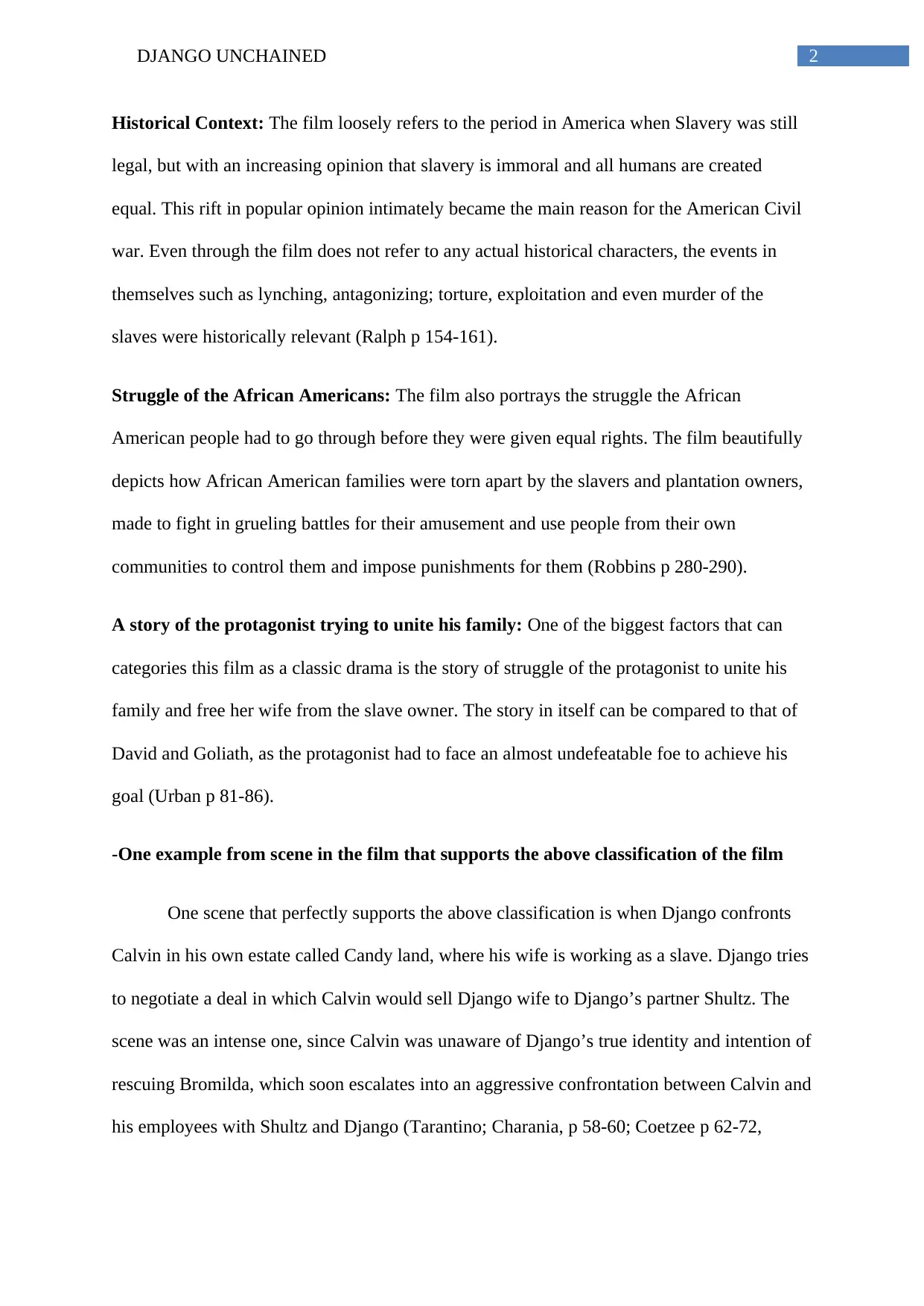

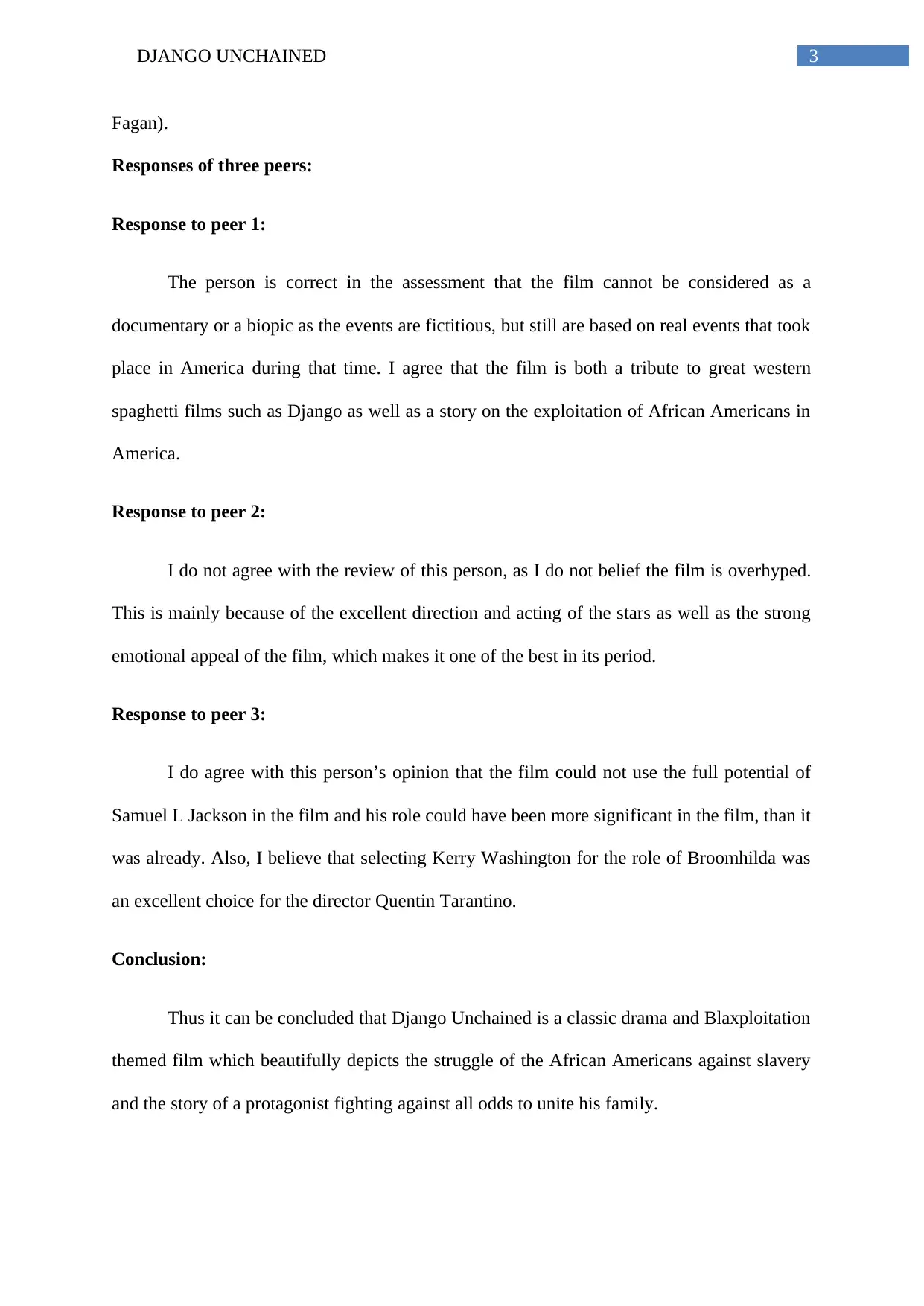
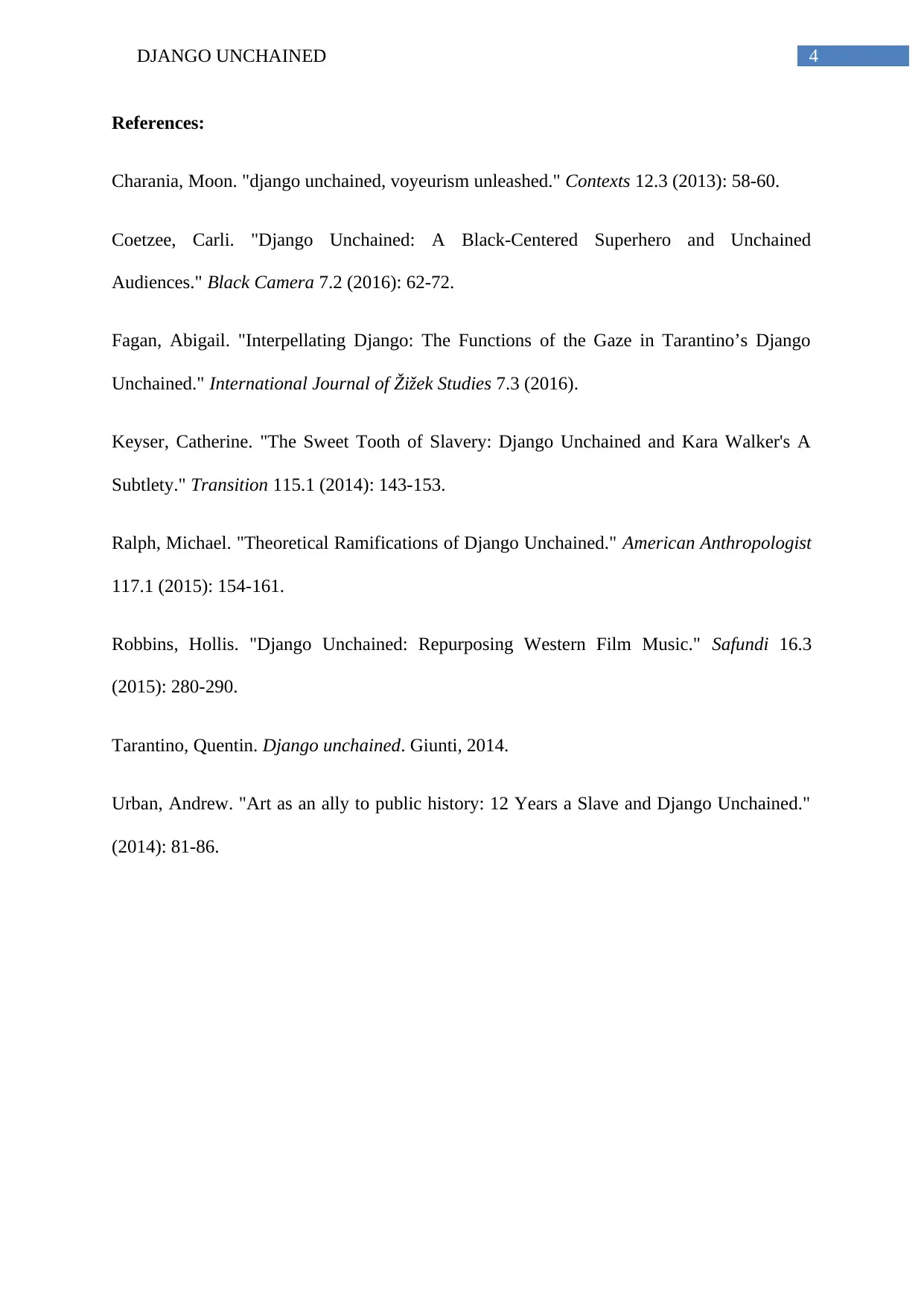
![[object Object]](/_next/static/media/star-bottom.7253800d.svg)